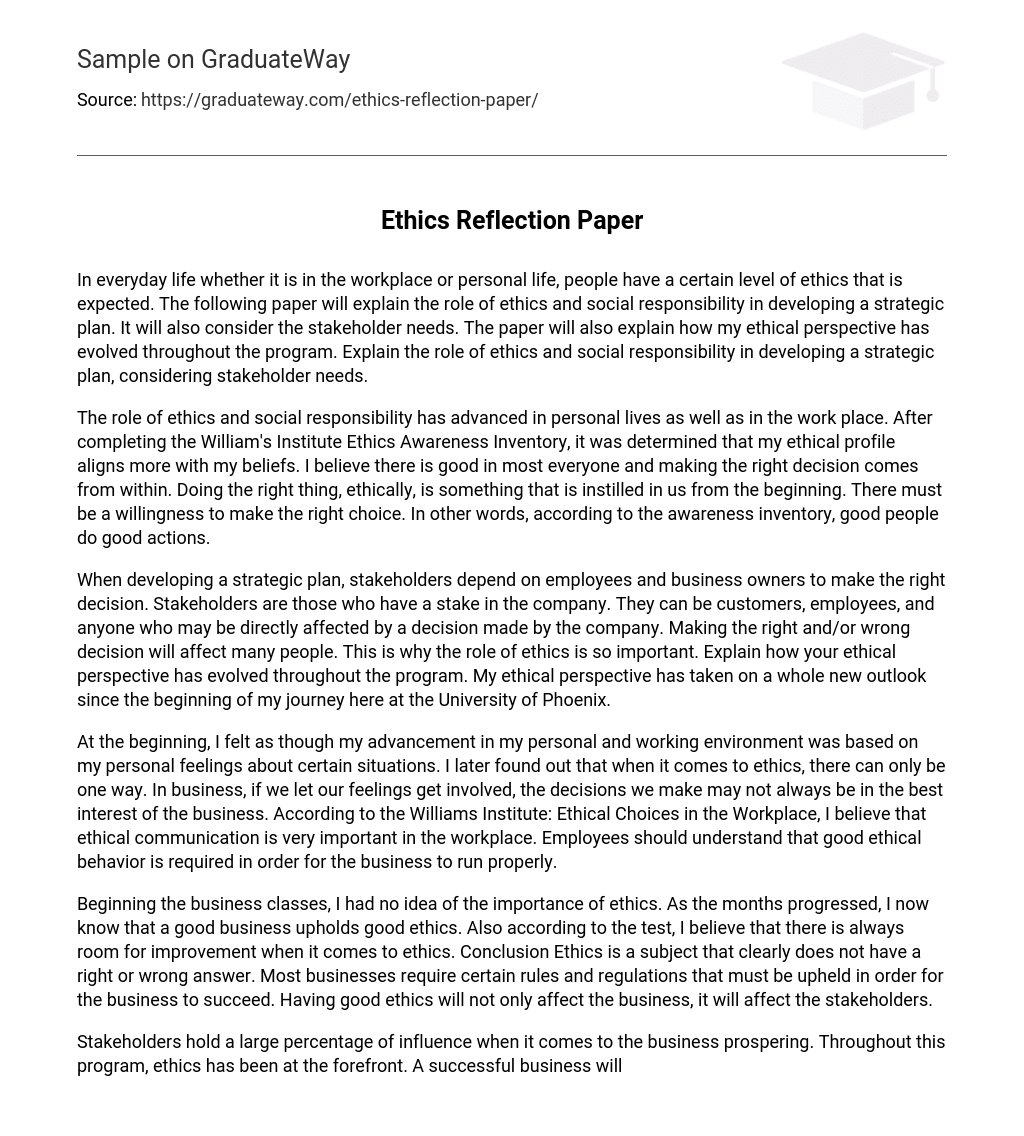Both professional and personal settings discuss the significance of ethics and social responsibility in developing a strategic plan that considers stakeholders’ needs. This paper also investigates how my ethical perspective has changed throughout the program, particularly focusing on the role of ethics and social responsibility in creating a strategic plan that meets stakeholder requirements.
The concept of ethics and social responsibility has developed in personal lives and the workplace. Based on my William’s Institute Ethics Awareness Inventory findings, my ethical profile coincides with my beliefs. I hold the viewpoint that people are generally good by nature and ethical decision-making is influenced by one’s internal values. Being morally upright is inherent in individuals from the start, necessitating a willingness to select what is right. In essence, the awareness inventory suggests that virtuous individuals typically partake in virtuous behaviors.
During the development of a strategic plan, it is crucial for stakeholders to rely on input from employees and business owners to ensure appropriate decision-making. Stakeholders include customers, employees, and all those impacted by company choices, making their role within the organization critical. The consequences of these decisions can impact multiple individuals, underscoring the significance of upholding ethical standards. In this essay, I will discuss how my ethical perspective has evolved while studying at the University of Phoenix.
Initially, I believed that my emotional responses to various situations played a significant role in my personal and professional growth. Nevertheless, I soon realized that there exists a singular correct approach to dealing with ethics. When it comes to the corporate sphere, allowing our emotions to guide us might not always align with the best interests of the company. The Williams Institute: Ethical Choices in the Workplace emphasizes the significance of ethical communication within a work setting. It is imperative for workers to comprehend that upholding proper ethical conduct is crucial for ensuring the smooth functioning of the business.
At the start of my business classes, I lacked comprehension regarding the significance of ethics. Nevertheless, over time, I comprehended that embracing an ethical approach is crucial for attaining success in business. Additionally, upon completing the test, I recognized the potential for improving ethics. In conclusion, ethics is a complex subject with no definitive solution. Many businesses have particular guidelines and regulations they must follow to thrive. It is vital to maintain good ethics not only for the benefit of the business but also for all stakeholders involved.
The success of a business is greatly influenced by stakeholders, and throughout this program, strong emphasis has been placed on ethics. A prosperous business depends on having robust ethical values.
Reference
- University of Phoenix: Williams Institute: Ethics Awareness Inventory and Williams Institute: Ethical Choices in the Workplace. Retrieved October 28, 2012.
- Pearce, J. A. , II, Robinson, R. B. (2011).
- Strategic management: Formulation, implementation, and control (12th ed. ). Boston, MA: McGraw-Hill/Irwin.





